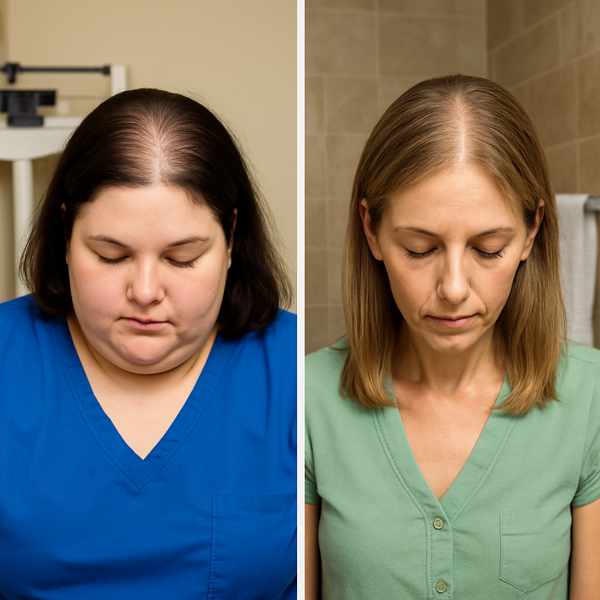
Many people notice their hair thinning during or after a weight loss journey, which can be concerning.
Understanding why this happens and how to protect your hair can help you reach your goals without compromising your confidence.
The Link Between Dieting and Hair Shedding
When your body undergoes a major change — especially fast weight loss — it can respond by pausing non-essential functions like hair growth.
Common causes include:
- Nutrient deficiencies
- Body enters stress mode
- Hormonal imbalances
- Rapid weight loss
Temporary Hair Loss Explained
Most hair loss related to weight loss is called telogen effluvium.
Key facts:
- There’s a delay between cause and effect
- No bald patches, just thinning
- It often resolves on its own
Eat for Hair, Not Just Fat Loss
If you're trying to lose weight, be sure not to miss these nutrients:
- Protein
- Iron
- Biotin and other B vitamins
- weight loss and hair loss Zinc
- Vitamin D
Skipping meals or using crash diets can easily lead to deficiencies that trigger hair loss.
Staying Healthy Without Sacrificing Hair
It’s possible to do both by following a balanced and mindful approach.
Tips include:
- Aim for 1–2 pounds per week
- Focus on whole, balanced meals
- Especially during calorie restriction
- Both affect hormones and hair health
- Hair needs water, too
How to Manage Hair Loss During Your Journey
If you notice excessive shedding:
- It’s likely temporary
- Check for deficiencies or thyroid issues
- Focus on protein and iron intake
- Try gentle hair care
- Hair regrowth takes a few months
Getting Expert Help for Hair Loss
A doctor or dermatologist can help identify underlying issues like:
- A common cause of both weight and hair changes
- Can trigger more permanent forms of hair loss
- Severe nutritional deficiencies
Final Thoughts
Weight loss and hair loss can be connected, but they don’t have to be permanent partners.
Prioritize nourishment, patience, and consistency, and your body will thank you — from head to toe.